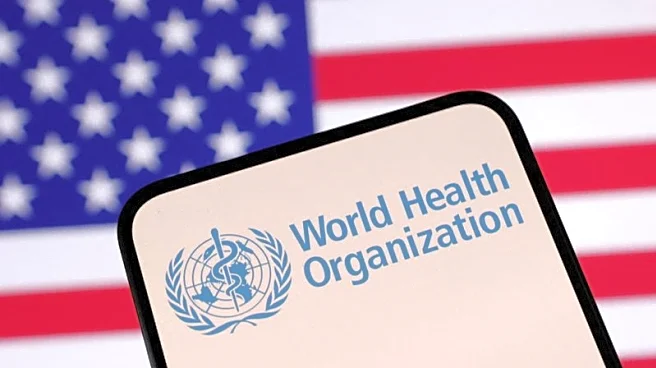What's Happening?
Star Therapeutics, a biotechnology company based in South San Francisco, has announced plans to present interim data from its Phase 1/2 multidose study of VGA039 at the upcoming American Society of Hematology (ASH) Annual Meeting. The event is scheduled
to take place from December 6-9, 2025, in Orlando, Florida. VGA039 is a monoclonal antibody therapy designed to target Protein S, aiming to restore balance in the blood clotting process for patients with von Willebrand disease (VWD). The therapy is noted for its potential to be a universal hemostatic treatment, offering a subcutaneous, once-monthly dosing regimen that could significantly reduce the treatment burden for patients. The study's interim results will be shared through an oral presentation and several poster sessions, highlighting the therapy's efficacy in reducing bleeding rates and its potential application across various bleeding disorders.
Why It's Important?
The development of VGA039 is significant as it addresses a critical need for more effective and convenient treatments for von Willebrand disease, the most common inherited bleeding disorder. Current treatments often require frequent intravenous infusions, which can be burdensome for patients. VGA039's subcutaneous administration and monthly dosing could improve patient compliance and quality of life. Additionally, the therapy's novel mechanism of action and its designation as a Fast Track and orphan drug by the FDA underscore its potential impact on the treatment landscape for bleeding disorders. Successful development and approval of VGA039 could benefit over 130,000 individuals in the U.S. diagnosed with VWD, as well as patients with other bleeding disorders.
What's Next?
Star Therapeutics is advancing VGA039 into a Phase 3 study, which will further investigate its safety and efficacy as a prophylactic treatment for bleeding in VWD patients. This global single-arm crossover study will provide more comprehensive data on the therapy's long-term benefits and risks. The results from the ongoing Phase 1/2 study, to be presented at the ASH meeting, will likely influence the design and focus of the Phase 3 trial. Stakeholders, including healthcare providers and patients, will be closely monitoring these developments, as they could lead to a new standard of care for bleeding disorders.


















